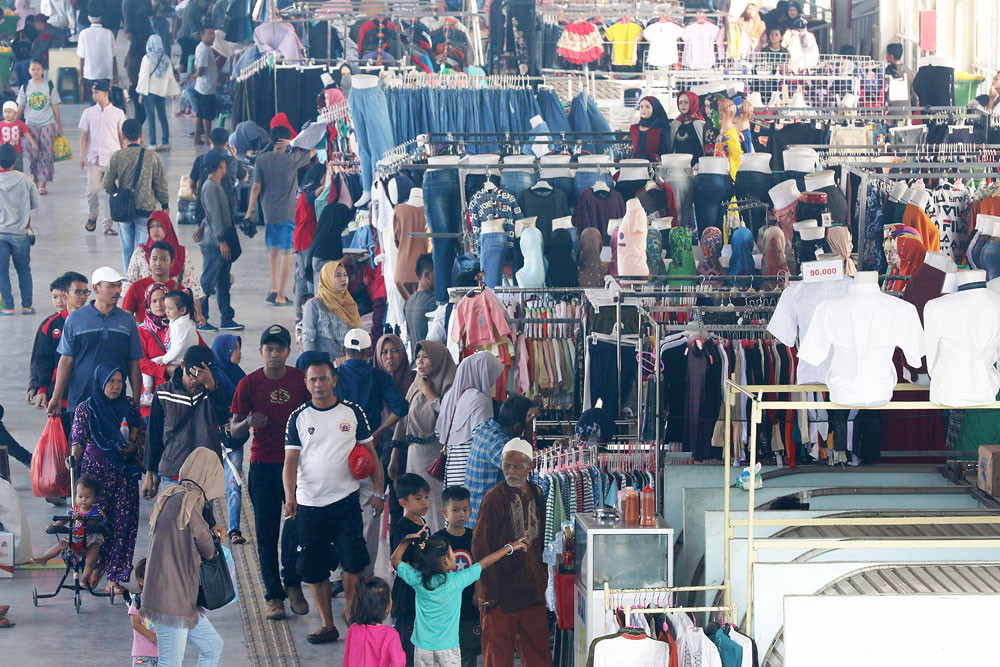Popular Reads
Top Results
Can't find what you're looking for?
View all search resultsPopular Reads
Top Results
Can't find what you're looking for?
View all search resultsTextile industry under scrutiny for potential ‘import leaks’
The ministry's move follows urgings from the textile industry for the government to protect them from rapidly growing imports, as the sector cannot compete in the domestic and international markets.
Change text size
Gift Premium Articles
to Anyone
T
he Trade Ministry is working with a special task force to audit producers’ importer identification numbers (API-P) to verify the textile industry's import quantity and identify possible "import leaks", a top official said on Wednesday.
Trade Minister Enggartiasto Lukita said at a press forum in Batu, East Java, that he had yet to confirm the source of excess imports.
He added that mistakes made in import verifications done by state-appointed surveyors at bonded logistics centers could be one of the causes and he plans to revert verification responsibilities from such surveyors to the Directorate General of Customs and Excise (DGCE) again.
"The key is that we will verify and [hand over]the bonded logistics centers’ system to the DGCE. We will then issue import licenses based on the business’ capacity, which will soon be under audit," he said.
"But it is impossible for us to stop imports if businesses require raw materials that aren’t produced locally. And we can't stop exports, either.”
The task force is made up of personnel from the Industry Ministry, Consumer Protection and Commerce Order Directorate General, Foreign Trade Directorate General and the Indonesian Textile Association (API).
The ministry's move follows urgings from the textile industry for the government to protect them from rapidly growing imports, as the sector cannot compete in the domestic and international markets.
Statistics Indonesia (BPS) data shows that export growth in the textile industry has been just 3 percent annually over the last 10 years, while import growth has been 20 percent annually in the same period.
Similarly, the Indonesian Association of Synthetic Fiber Producers has said that fabric imports increased threefold from 300,000 tons in 2008 to 900,000 tons in 2018, while garment exports stagnated at about 550 million tons over the same period.
According to API, as many as nine textile factories have closed and at least 2,000 workers have been dismissed because garment producers prefer to buy imported fabrics.
"This is a red alert for the textile industry," API chairman Ade Sudrajat Usman said at a recent press conference.










